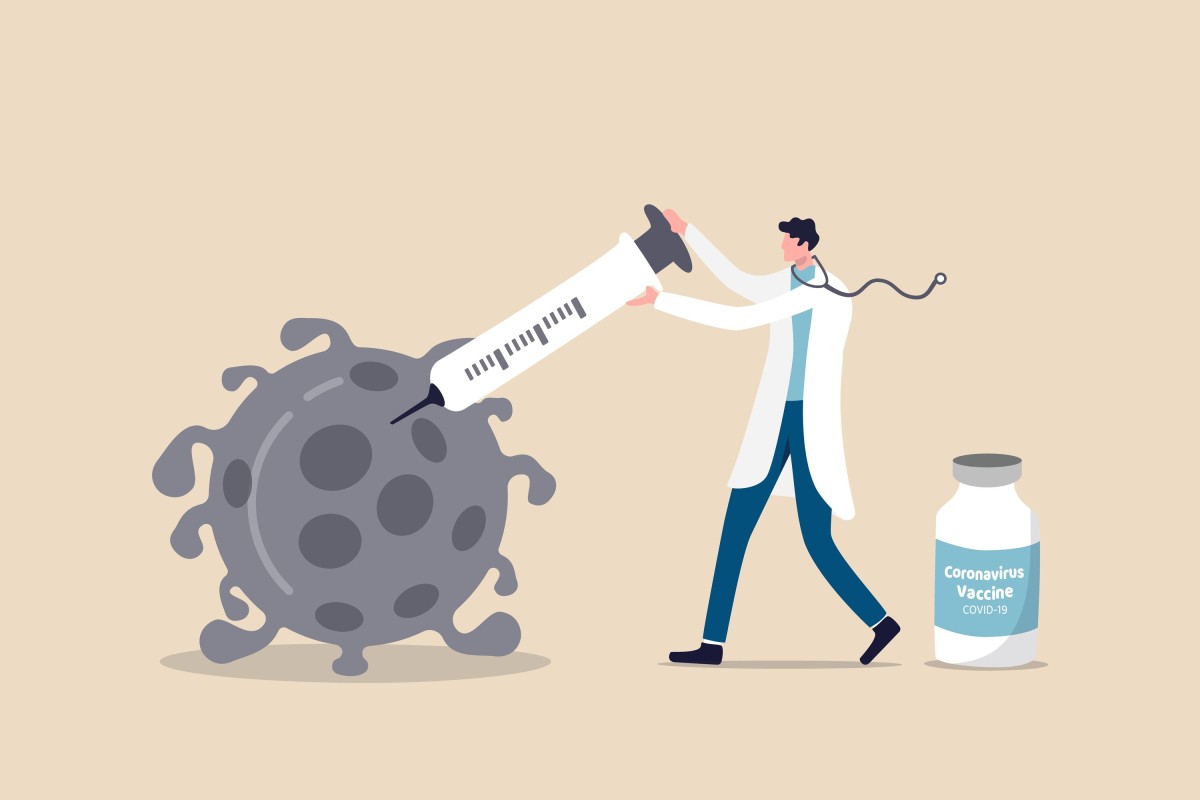
Face Off: Should vaccination be a precondition for students to resume in-person classes?
- Each week, two of our readers debate a hot topic in a parliamentary-style debate that doesn’t necessarily reflect their personal viewpoint.
- This week, students debate whether teens should be required to have the coronavirus jab to go back to school as normal
 Should vaccines be a requirement for resuming full day in-person lessons?
Should vaccines be a requirement for resuming full day in-person lessons?Nicole Lee, 16, Benenden School, Britain
Secondary school students are yearning for a return to normalcy. We have had online lessons for more than a year, facing many difficulties along the way, such as being unable to socialise with classmates and having to work through technical difficulties while learning on Zoom.
With the Hong Kong government recently allowing children aged 12 and above to begin receiving the Pfizer-BioNTech jab, it is now logical to make vaccinations compulsory for those wishing to resume full-day, in-person classes.
The recent expansion in the city’s vaccine roll-out reflects the actions of developed countries such as Germany, which started offering coronavirus shots to children aged to 12 to 15 from June 7.
Students around the world talk about Covid, one year on
Globally, an increasing number of secondary students are getting vaccinated, as surveys have shown this age group suffers relatively mild side effects.
Pfizer’s clinical trials have suggested their vaccine is 100 per cent effective for adolescents ages 12 to 15 - none of those who took the shot developed Covid-19.
This is very good news. It means vaccinations can almost eliminate virus-related disruptions to education. What’s more, making vaccinations compulsory would reassure students that all their friends at school are protected from the virus, too.
Getting vaccinated will help us return to our pre-pandemic lifestyle: full-day classes where we can talk to teachers and classmates without worrying about the risk of spreading disease.
Hong Kong teens hesitant to get vaccinated
Students already stress about their homework, exams and extracurriculars - why add coronavirus to that list?
Resuming in-person classes brings huge benefits for students, and vaccinations are a way to speed up our return to normal.
Many things are already compulsory for secondary school students, including going to school and wearing a uniform. Given the safety of the jabs for this age group, it makes sense to make vaccinations a precondition for attending physical lessons in school.
Could vaccines help life get back to normal(ish) this year?
Yuhan Huang, 14, German Swiss International School
There is no doubt that vaccinating all students will help Hong Kong achieve herd immunity against the coronavirus. But making vaccinations a precondition for students to resume in-person classes is much too harsh, when it would be more helpful in the long run to educate parents and students about vaccination’s benefits and low risks.
“Vaccine hesitancy” is not a new phenomenon, though it has flared up in Hongkongers’ responses to the introduction of the Sinovac and Pfizer-BioNTech vaccines this year in January. Many people are concerned about the side effects that may arise from getting the jab.
What you need to know about the vaccination scheme
While their worries are not rooted in scientific evidence, it is important for the government to address these concerns and educate the public.
Instead of forcing parents to get their kids vaccinated, health authorities should convince them by explaining the merits of receiving the anti-Covid shot.
The Pfizer jab, which is the only vaccine in Hong Kong that students as young as 12 are eligible for, uses mRNA technology to protect people against this deadly disease. This method has undergone extensive research over the past decade, and it is highly effective.
A vaccine expert answers all your questions about the jab
Ultimately, parents want the best for their children. So if their concerns are properly addressed, there will be less resistance to the vaccine. It is better to reinforce positive behaviour rather than issue mandatory “orders”.
If some students are still not vaccinated even after they and their parents have been properly informed, they should still be allowed to attend in-person classes because the quality of their education should not be sacrificed.
Instead, schools should continue to strongly encourage vaccinations while maintaining social-distancing measures and limiting after-school activities for unvaccinated students.